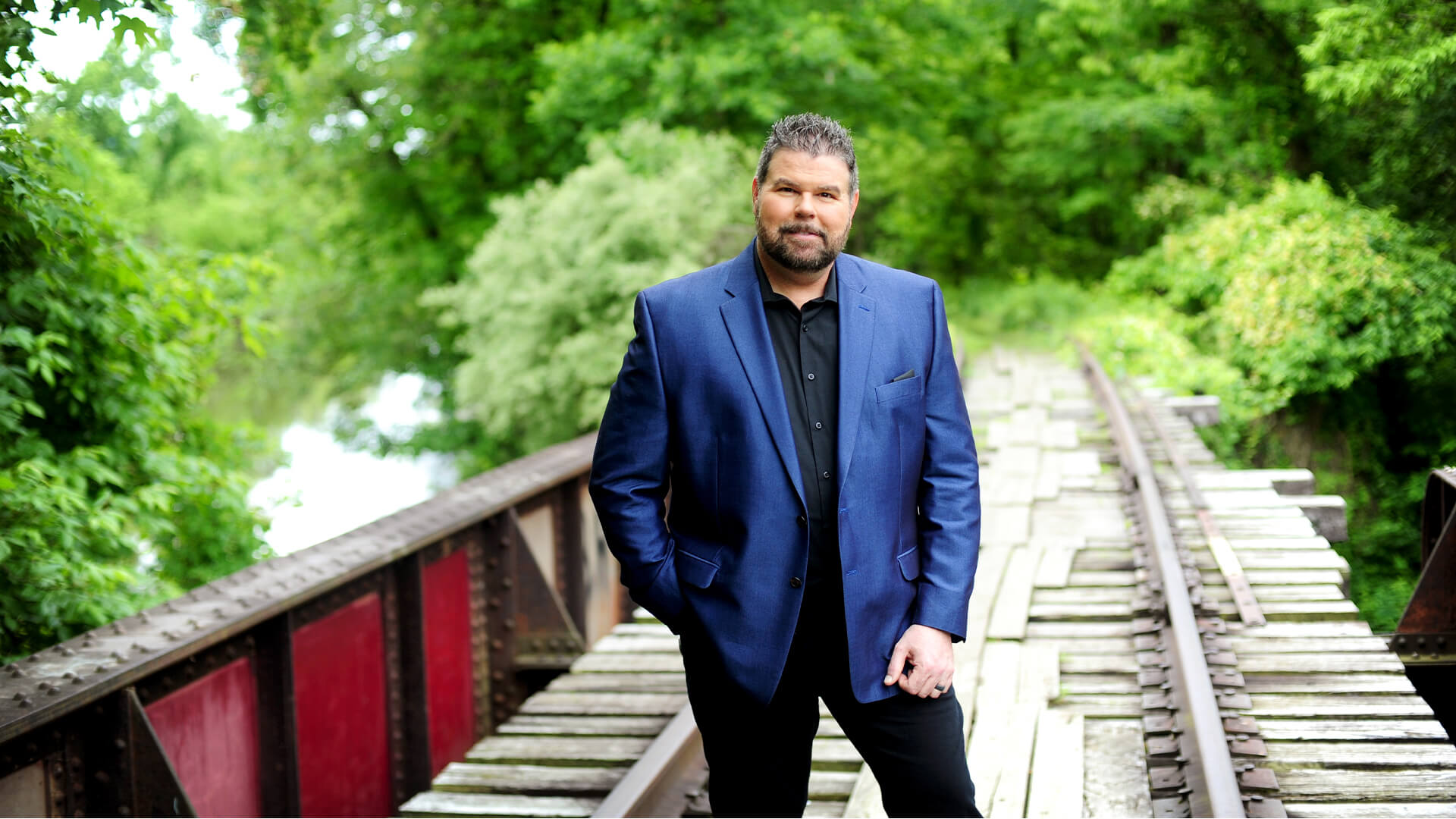Artificial Intelligence-enabled Internet of Things with 5G+ connectivity is the next major innovation on the technological horizon. Although many companies are not familiar with AI -enabled IoT’s power to transform operational processes, businesses increasingly depend on the competitive advantages that the solutions offer. With the capacity to connect disparate systems and elevate business needs in unprecedented ways, powered by a range of connectivity solutions; EPIC IO and it’ subsidiaries are perfectly poised to lead the public and private sectors through this wave of innovation, under the impressive leadership of Ken Mills. We take a closer look at the firm and Ken’s history to see just how he did it.
For the last twenty years, IntelliSite has been an early champion of internet-of-things (IoT) solutions. For the layman, IoT describes a network of physical objects that link sensors, software, and other devices through wireless connectivity, transforming streams of data into actionable, strategic responses. For a wide range of businesses, there is enormous potential to be explored, and IntelliSite is a key player within the solutions infrastructure market that has evolved.
IntelliSite, now a subsidiary of EPIC IO, with global headquarters in Fort Mill, SC, and offices in Ceres, CA, Argentina and Costa Rica, delivers targeted outcomes for customers across IoT, safety and security, and computer vision enablement. Over the years, IntelliSite’s team has turned its attention from sophisticated turnkey solutions to a range of subscription-based managed applications that deliver AI-powered intelligent analytics and actionable outcomes for connected businesses and communities. Leading this evolution into this brave new world of smart communities and digital connectivity is EPIC IO, CEO, Ken Mills.
Mr. Mills brings a wealth of information to his role as the Chief Executive Officer of EPICIO. For the past two decades, he has worked in the field of business-to-business technology and information security, giving him not only a unique insight into the industry-at-large, but also expertise and depth of knowledge unmatched by other companies that are only now entering the field. Mills’ approach ensures that EPIC IO and its subsidiaries, Broad Sky Networks and IntelliSite are always one step ahead, able to provide the valuable, tailored solutions that people need, when they need it.
With a Bachelor of Science (BS) in Business Management from the University of Phoenix and a Master of Public Administration (MPA) from Clemson University, Mr. Mills has spent a great deal of his life balancing the needs of the public and private sector. He has been a Partner in one of the largest contract field sales organizations in the U.S. and served as a Nuclear Engineer for the United States Navy. He spent nearly eight years building a hyper-growth business for Cisco’s safety and security, access control, and emergency response business unit, which he followed with a stint as a Fellow at the U.S. Department of State.
Prior to his leadership role at EPIC IO, Mr. Mills was the General Manager and Chief Technology Officer (CTO) at Dell Technologies safety and security, IoT, and computer vision business unit. He quickly made a name for himself, not only as an exceptional businessman but as one of the company’s top experts in the areas of security and public safety. Over the years, his work proved to be instrumental in creating and advancing solutions that Dell Technologies’ safety and security division had under development.
In short, when it comes to matters of technology and security, Mr. Mills is driving innovation in this space with a depth of knowledge few competitors can match. To ensure that EPIC IO’s business offerings remain at the cutting edge, Mills conducts significant outreach as a member of the Security Industry Association (SIA), serves as an Advisory Board Member for the National Center for Spectator Sports Safety and Security, and writes opinion pieces as a member of the Forbes Technology Council. These outlets allow Mr. Mills to communicate with his peers and stay abreast of the latest changes and innovations under development in this fast-paced field, always calibrating the impact such trends will have on his work.
When it comes to EPIC IO’s future, it’s clear that the holding company and its subsidiaries will have a big impact on the technology sector as a whole. The team has produced hundreds of enterprise-scale solutions spanning across such diverse economic sectors such as the healthcare industry, public works, financial, energy, agriculture, retail, and education markets, with deployments across the US, Europe, and Latin America.
“The reason for our success is simple,” shared Ken, “We focus on the ‘Why’ with every customer. Whether it is a city manager, facility manager or the Chief of Police, we start with the desired outcomes first. Then our team of experts can work through how we get from A to B to deliver the desired, measurable results. Our end-to-end managed solutions shepherd our clients through every step of the process – from design, to procurement and installation, all the way through life-time system health management.”
At the heart of every solution is IntelliSite’s open, nimble and extensible software platform, connecting desperate streams of new and existing cameras and IoT sensors to create sophisticated solution systems, capable of providing high-volume, AI-enriched data, and near real-time visual computing analytics. IntelliSite solutions gather all of the sensor data information that is available and leverage the latest technology innovations to convert that data into to actionable information, that positively impact business operations and goals.
To serve the business community-at-large, the team provides various solutions in a variety of different areas. For example, products such as IntelliSite’s heuristic-based monitoring (hBM) combines the team’s DeepVisionAI and DeepLogic Rules Engine, which enables multi-sensor and multi-system integration with DeepInsights federated visualization, alerting, and reporting capabilities. When used alongside a third-party FDA-compliant thermal/optical camera, the result is the most complete thermal monitoring solution available.
The hBM Solution software completes three-layers of assessment, beyond the strictly thermal reading provided by the camera, which ensures that thermal noise can be removed, reducing the chance of false positives. The end result: businesses can confidently execute screenings of employees and visitors not only for temperatures, but for mask compliance, occupancy management and even employee badge screenings for check in. Centrally managing and automating a process that was once a demand on human resources with more efficient, effective, and data-driven results.
“We have had great success in working with communities to solve their safety and security issues, one pilot at a time. Recently our company worked with the Alameda County Department of Justice in California to provide an AI-enabled IoT solution to reduce illegal dumping. Illegal dumping was costing the city more than $8 million dollars a year at the time,” Ken explained.
“The Alameda District Attorney’s office was extremely pleased with the result of our engagement. After carefully assessing their challenge, we helped form a private-public partnership with local businesses. Business owners were frustrated with the lack of cleanliness in the area and its impact on their business. IntelliSite, the DAs office, and business owners worked in concert to strategically place cameras where IntelliSite’s AI-enabled cameras where IntelliSite’s DeepLogic software could identify trigger events, such as a car illegally parked or activity in an area of frequent illegal dumping through IntelliSite’s DeepInsights analytics dashboards.”
The return on each intelligent solution multiplies when you consider the team’s remote management services. This is an invaluable security resource for companies, providing 24/7 monitoring by a professional security team. Instead of working onsite, this team can engage remotely, escalating engagement where necessary to an onsite security team or with local authorities. Having the option to gather more information and react appropriately is expected to transform the options available for security services. This system can be deployed on a larger scale as IntelliSite’s Smart Community as-a-Service (SCaaS) powered by Broad Sky’s 5G Connectivity. For local communities, the remote monitoring or “IntelliCare” service is available at an affordable monthly subscription that offers state-of-the-art safety and security monitoring solutions.
Needless to say, AI-enabled IoT solutions are inherently complex with many moving parts between hardware, software, connectivity, and service components. But when EPIC IO, IntelliSite and Broad Sky Networks are involved, the team creates the perfect, bespoke solution, specifically tailored to an organization’s wants and needs.
Intelligent solutions are an important feature of modern life, and the team at EPIC IO offer something truly revolutionary. We celebrate the success of Mr. Mills and his amazing team as they explore new avenues for success in the future.
For further information, please contact Beatriz Burgos at www.intellisite.io












